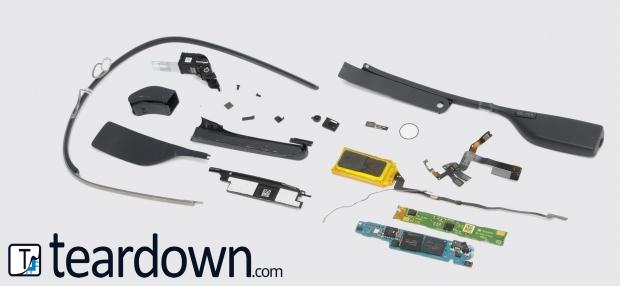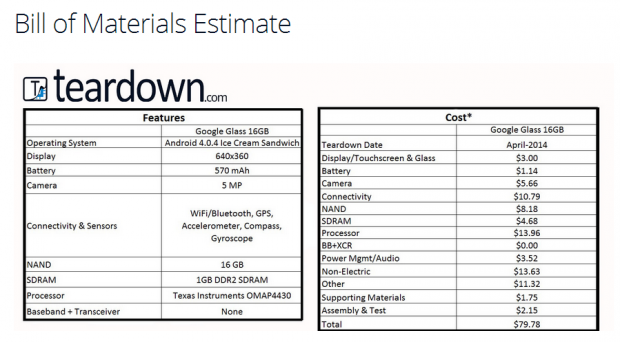While Google Glass has been regarded as a major advancement in wearable technology, the general public has been, for the most part, hesitant to purchase a pair of Google Glasses themselves. While I am sure that there are thousands of early adopters, techies, and trend followers who have dived head first into the world of Glass, the $1500 price tag makes it very hard for many consumers to swallow, including myself.

According to new estimates, Google Glass is only comprised of about $80 in components which leaves one to wonder why exactly the new technology is worth the $1500 premium that Google has placed on it. Now before anyone jumps on me, I am sure that manufacturing, packaging and marketing cost are factored in as well, but at tops, I see Glass being worth only about $350-500. I also get that Google needs to recoup some of the R&D cost on Glass, but even then a $550-700 price tag would see fair.

When Teardown.com broke Google Glass down piece by piece, the company itemized each part and figured out the fair-market value on each component. Looking at the bill of materials below the most expensive piece of the whole device is its processor, coming in at $13.96, and the next highest component being the non electronic parts including the frame and such which accounted for an additional $13.63. Overall the entire list comes out to just under $80, and assuming that Google orders these parts by the tens of thousands, I am willing to bet they only pay about $50-60 per Glass device they ship.

